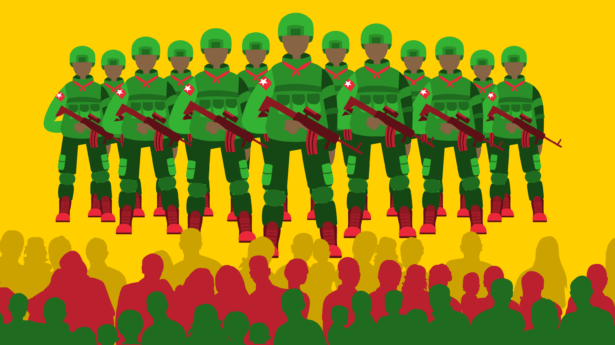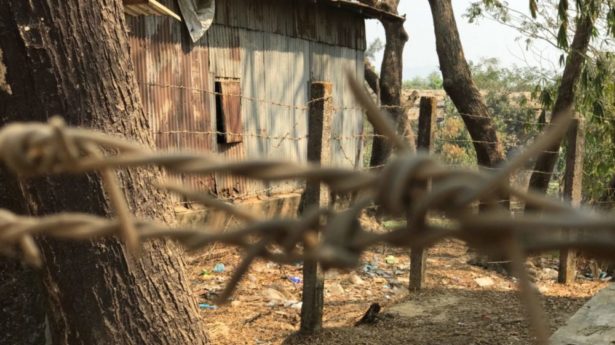The Unitarian Universalist Service Committee advances human rights through grassroots collaborations.
Photo Essay: Understanding the Conflict in Burma
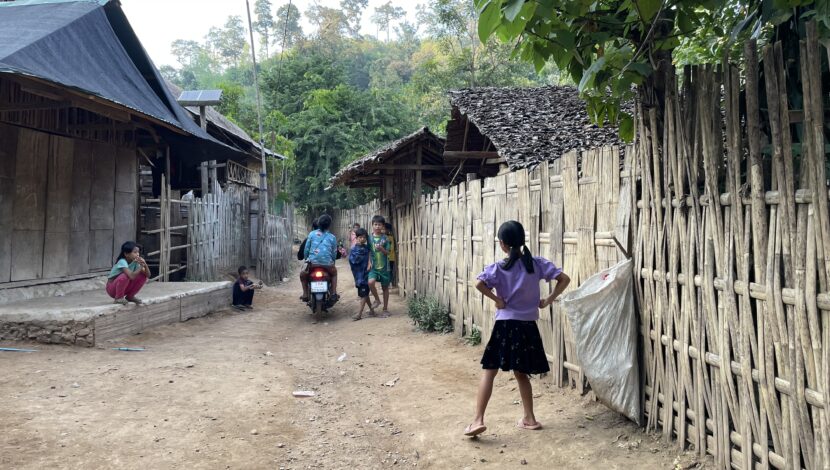
By Deanna Johnson on January 11, 2023
In November 2022, UUSC staff members traveled to Thailand to gain deeper insight into the realities of life in Burma at the moment. Today in Burma, pro-democracy actors are resisting total control by members of the military attempting to gain total control of the country. These military officials formed a junta and attempted a coup in February 2021 following the elections of the same year. UUSC works closely with actors and organizations who actively support the resistance and during the trip had the chance to meet with many of them and learn more about the situation on the ground. Here are some photos of the work that is happening in support of the people of Burma.
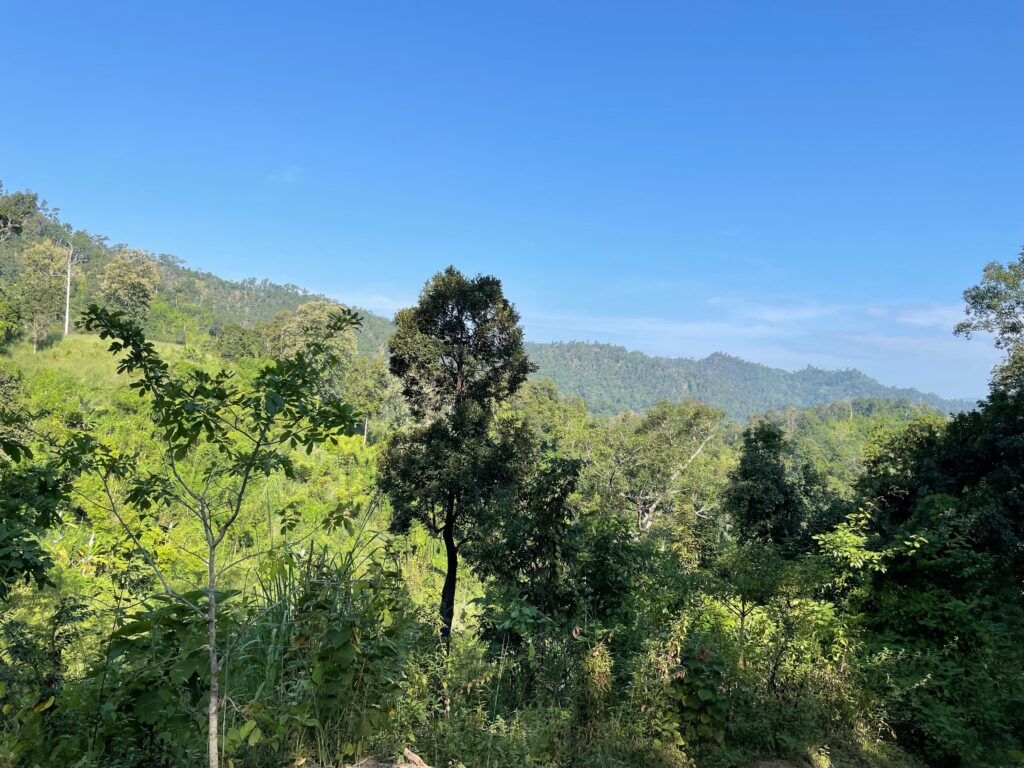
UUSC partners discussed the dramatic increase in airstrikes, mortar shelling, and the use of landmines, presenting significant threats to communities in Karen, Karenni, and Kachin States, where attacks have been occurring daily in some areas. Other tactics include the burning of entire villages, planting landmines in and around the villages to prevent civilians from coming back, the targeting of civilian gatherings, and the use of human shields. Unexploded ordinances also present a significant risk.
This has led to tremendous food and water insecurity in internally displaced persons (“IDP”) camps, refugee camps and villages as well as limited access to healthcare and education throughout the country. International efforts to address these issues have been largely unsuccessful due to bureaucratic inefficiencies and a lack of political will. For example, because the United Nations Office for the Coordination of Humanitarian Affairs (OCHA) decided to collaborate with the junta on all humanitarian aid assessments, a full 40% of the relief OCHA has provided has actually targeted the poor people residing outside of angon, the largest city in the country and former capital, rather than the areas most impacted by military violence.
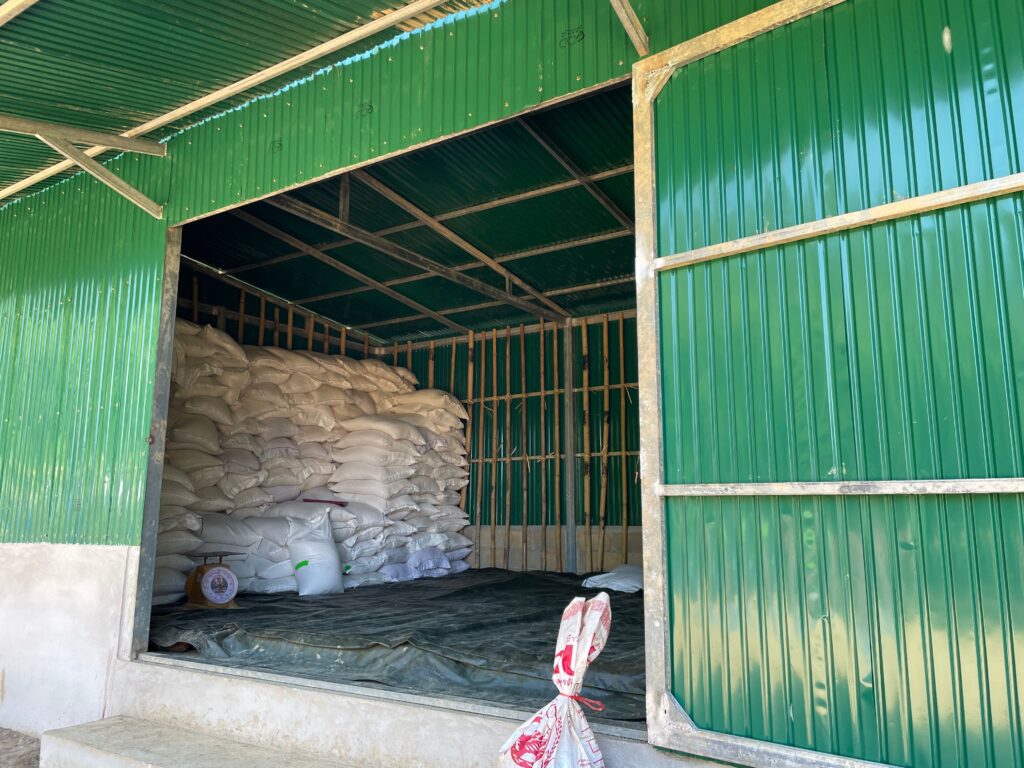
The threat of violence by the junta has seriously damaged livelihoods and economic prospects in the communities our partners serve. This is particularly true in rural communities, as the junta is directly targeting farms and other livelihood areas. According to UUSC partners within Karenni State, only 20% of farms have been able to harvest rice this year. Livelihood insecurity is tied to erosion of the rule of law. One partner reported increased looting and thefts in communities and within camps, and another explained how livelihood opportunities will be in even shorter supply for Burmese youth in a post-conflict state. This means that approaches to addressing livelihoods need to take into consideration long-term realities.
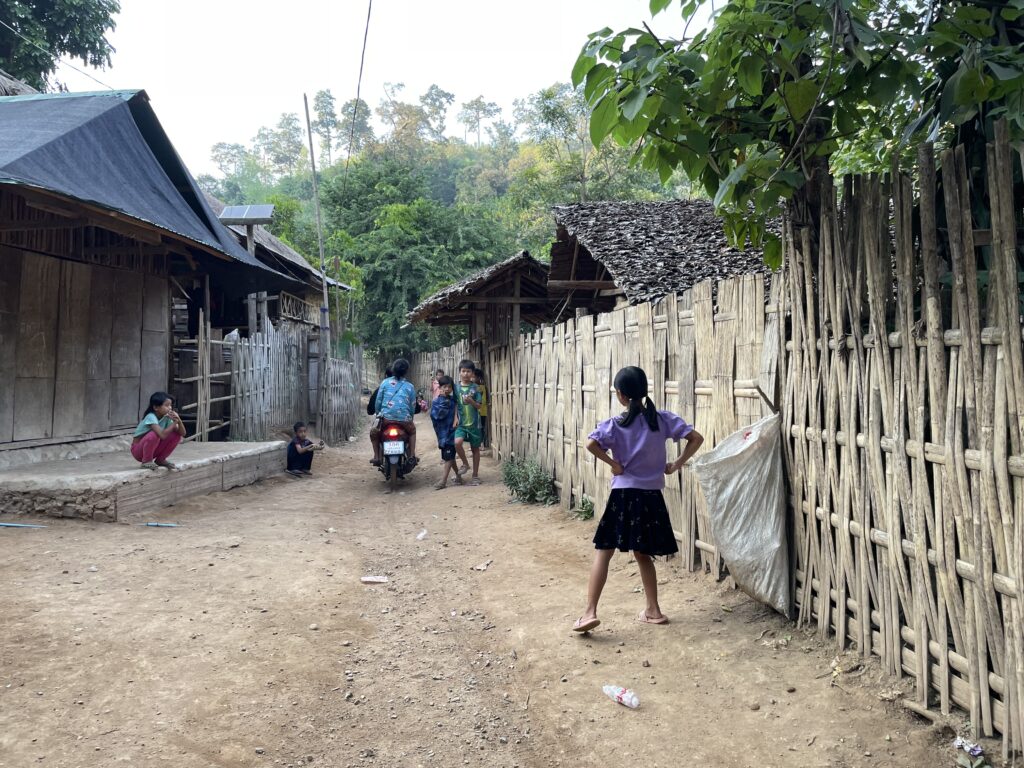
The population of displaced communities within Burma has exploded. UUSC partners reported that since the coup attempt in February 2021, more than 400,000 people have been displaced in Karenni State. This means that currently more than two-thirds of all Karenni people are now displaced. In Shan State, the number of IDPs has doubled. According to the United Nations, there are now more than 1.4 million IDPs in Burma, but it is impossible to keep up with the levels of displacement that current airstrikes are causing. Some communities are completely displaced, living in the jungle and in camps.
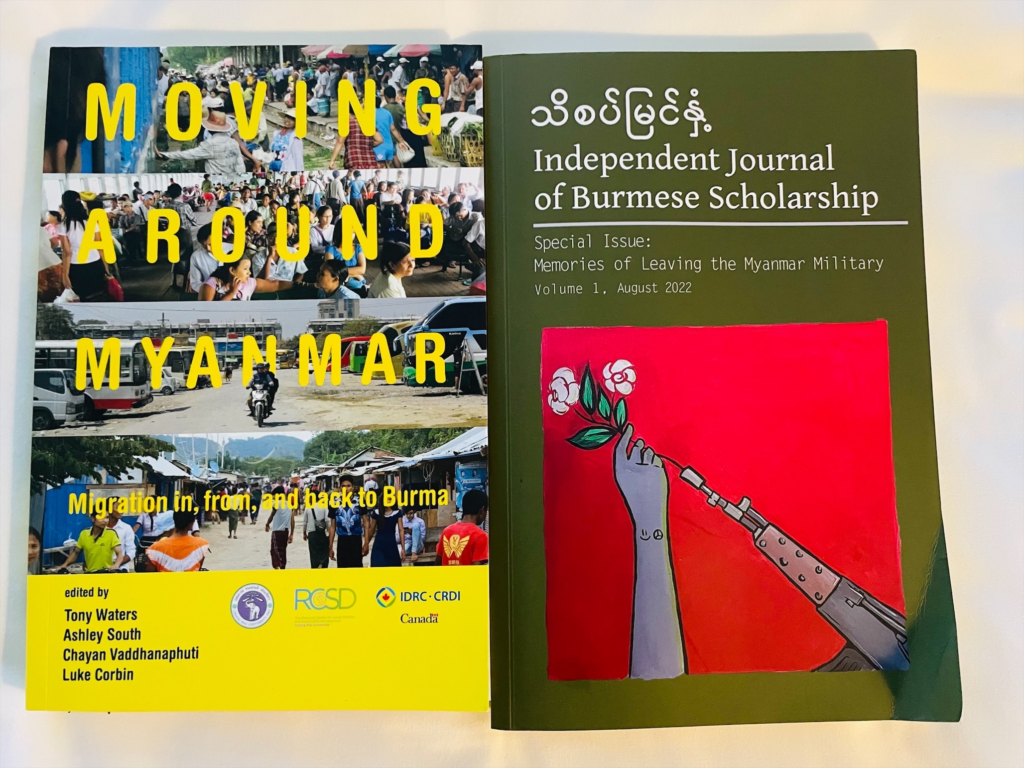
UUSC partners explained how junta spies are “everywhere” in certain Thai cities and present an ongoing threat to Burmese activists. This means UUSC partners must operate with a high level of caution any time they leave their homes and avoid any actions that might draw attention to them and their organizations, which can be costly and hinders their ability to work as quickly and effectively as possible. One individual stated, “We are worried about security all the time. We never feel safe.” Leaving also presents serious risks, and one can only cross the Burmese border into Thailand with the cooperation of Thai intelligence—which could be costly—and the support of the resistance movement.
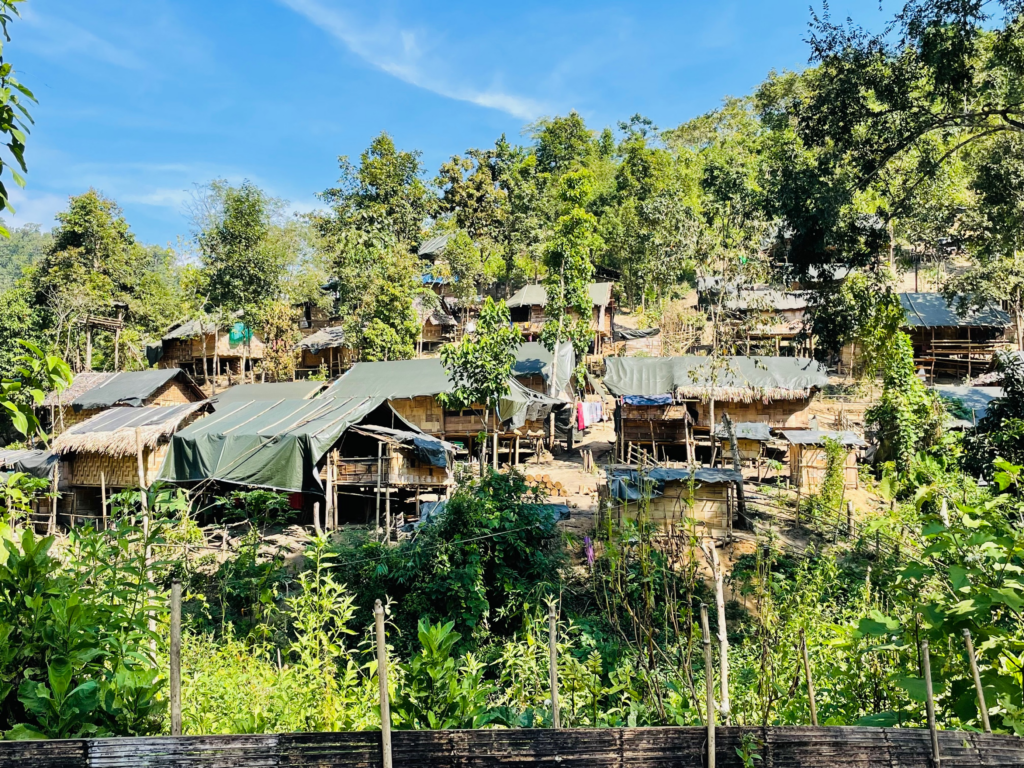
One of the major challenges cited by our partners was the lack of attention received by the international community. Since the start of the attempted coup, Burma has received shockingly little media attention and negligible humanitarian support—only the United States, United Kingdom, New Zealand, Australia, and Canada are supporting “cross-border” aid, which directs funding to Thailand for subsequent distribution to Burma—and it isn’t nearly enough. As such, the majority of humanitarian aid funding for UUSC partners comes from the international diaspora as individual donations to the organizations working on the ground.
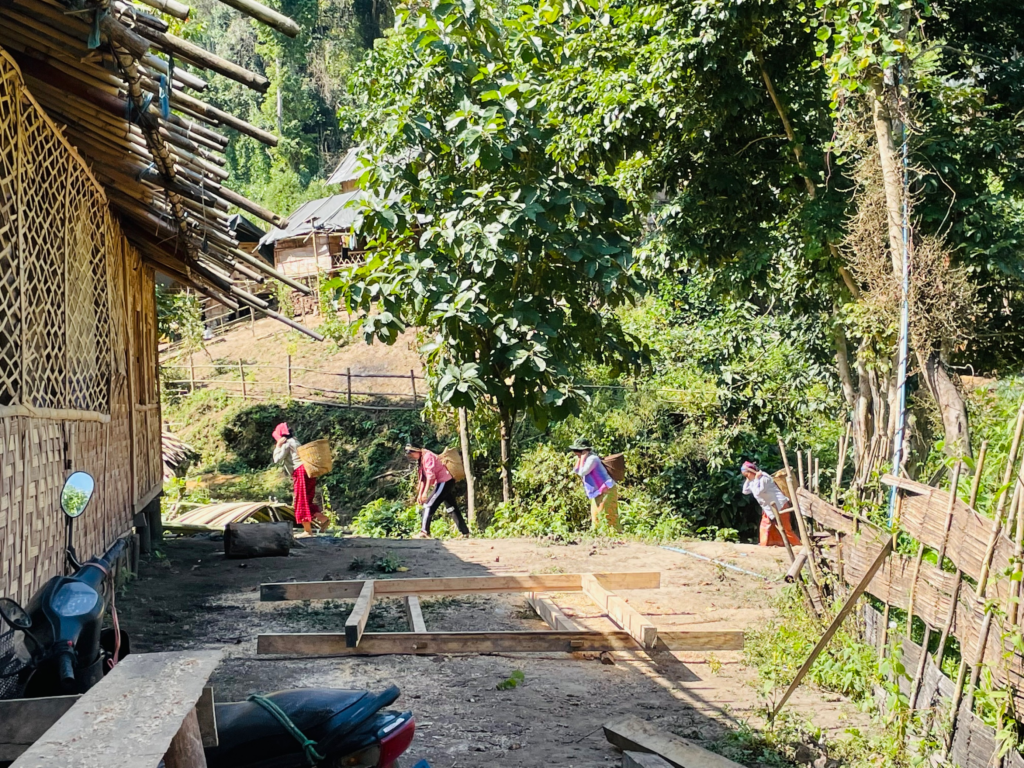
The work UUSC partners are accomplishing is awe-inspiring, but cannot be sustained without the support of the international community. Join us in supporting UUSC partners and donate today.
